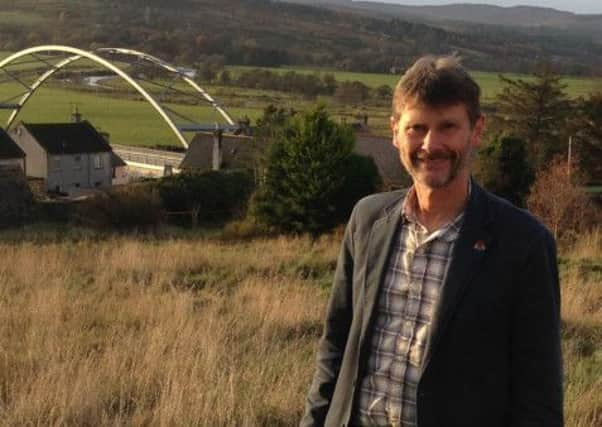Scots GP sets up charity to fund Ebola treatment


Dr Chris Mair, who plans to return to the Kerry Town centre in Sierra Leone later this year, is teaming up with a follow medic to set up a programme to support medical education in the country.
They hope to attract funding from businesses operating in the area and from organisations that have a track record in supporting medical causes.
Advertisement
Hide AdAdvertisement
Hide AdDr Mair, 61, a GP at the Creich Surgery in Bonar Bridge, Sutherland, spent six weeks in Kerry Town, working alongside Scots public health nurse Pauline Cafferkey who recently recovered from Ebola
He said: “While I was there it was clear to me that many of the country’s healthcare systems were either failed or stretched far beyond their capability.
“On Christmas Eve, I visited the hospital adjacent to the medical school in Freetown, the country’s capital. Grim is the only word to describe Connaught Hospital.
“It had virtually no doctors, with junior doctors being on strike and many of the senior doctors having succumbed to Ebola. Indeed, no operations were taking place there because of Ebola.
“I knew then that I wanted to do something to help.”
It was in a conversation Dr Mair had with Dr Mohammed Samai, the Provost of the College of Pharmacology, Medicine and Allied Health Sciences at the University of Sierra Leone, that his idea of setting up a charity to fund students through the college took shape.
“Dr Samai thought the idea was an excellent one,” he said, adding that he was particularly interested to learn that 40 of Dr Samai’s 60 students last year had to quit their course because they had run out of money.
He said: “The consequences of a drop-out rate like that are devastating for the country. An official told me there are only 130 public doctors in Sierra Leone, which has a population of 6.6 million.
“And yet student fees are only $2,500 a year – a fraction of what they are in the western world. Given that a student’s accommodation, books and equipment may also cost around $2,500 a year, and that an undergraduate course is for six years, it would cost only $30,000 to put a student through medical education.
Advertisement
Hide AdAdvertisement
Hide Ad“I am told that there are around 120 students currently unable to complete their course because of lack of funding.
“This is a desperate situation in a part of the world where healthcare systems are barely functional anyway.
“The Ebola crisis has magnified the crisis but Sierra Leone’s healthcare provision would be woefully inadequate even without Ebola.”
Dr Mair’s colleague in planning the new charity, Simon Mardel, went to St Mary’s Hospital Medical School with him in the 1970s.
Dr Mardel, 57, has worked in viral haemorrhagic fevers and public healthcare systems for much of his career.
A consultant in accident and emergency medicine currently working in Manchester, he was worked in about 20 countries, mainly in emergencies or outbreaks, with French, American or British non-governmental organisations, and the World Health Organization.
He was made an OBE in 1993, and his work in humanitarian crisis zones has taken him to places such as Afghanistan, Sudan and Srebrenica.
In the past decade he has worked on the Sars and bird flu outbreaks but he has latterly been working on the Ebola crisis in West Africa.
Advertisement
Hide AdAdvertisement
Hide Ad“It was great to meet up with him after a gap of 20 years while I was in Sierra Leone,” said Dr Mair. “I’m now looking forward to working with him on our new venture.”
He added that several factors had combined to fuel his passion for helping to address Sierra Leone’s healthcare problems.
While he was at Kerry Town he worked with Scots public health nurse Pauline Cafferkey, who recently recovered from Ebola.
A previous medical student at Dr Mair’s Sutherland practice looked after her while she was being treated at the Royal Free Hospital in London, and another one is currently participating in one of the Ebola vaccine first-wave trials.
“These are all coincidences, but there’s obviously a bigger reason for my interest in this,” he added. “I was there – and I saw how bad things are.”
FOLLOW US
SCOTSMAN TABLET AND MOBILE APPS